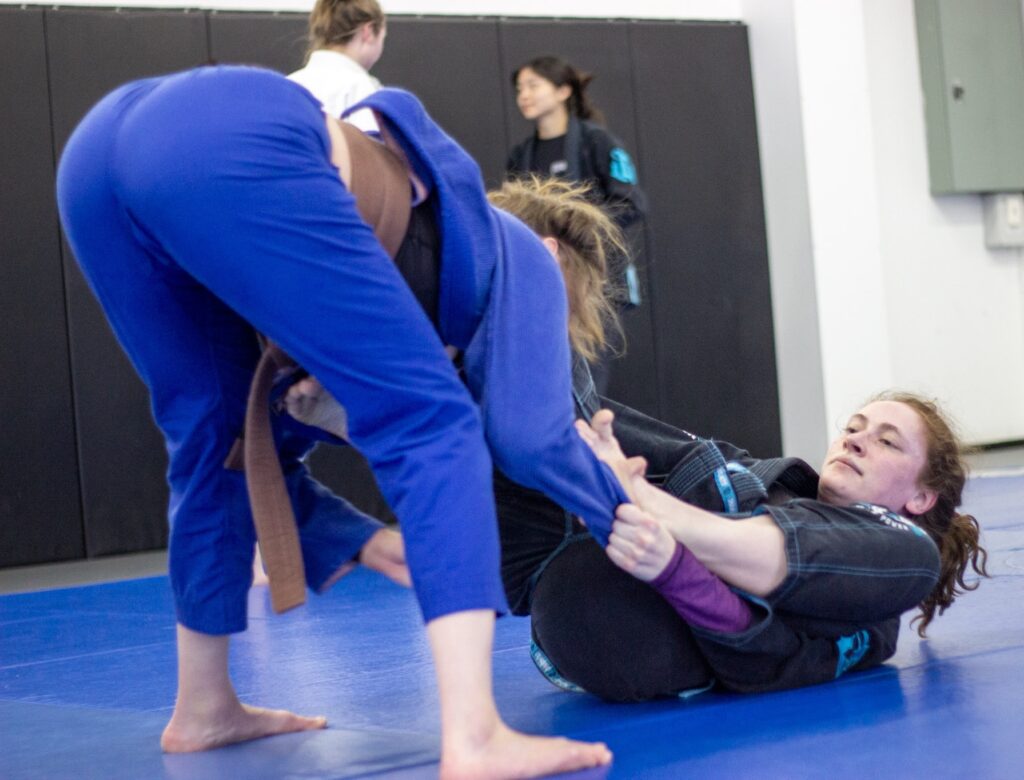Setting a personal challenge is a fun and adaptable method of focusing skill development to a specific area without moving away from the greater task.
There are three key steps to successfully creating a personal challenge:
-
Set a challenge.
-
Set a time frame.
-
Set stakes.
Set a Challenge
A good personal challenge can be anything that narrows your focus during sparring without taking away from the general focus of that sparring session. Some of the most effective challenges that I have tried in the past include:
Only attack submissions from certain positions (eg. You can only attack from mount).
Limit yourself to certain categories of submissions (eg. armlocks only).
Don’t get scored on at all.
Score first in every match.
Score a point every thirty seconds (great for cardio).
Set a Time Frame
Your challenge should have a clearly defined start and end.
One session.
One week.
Three months.
Strange as it seems time frames that run longer than one week but less than three months aren’t particularly useful. Challenges that focus on behavioural habit setting (ie. score first, score every 30 seconds) are best done over shorter periods and undertaken frequently throughout the year. Regular re-exposure to the stimulus is key in circumstances where behaviour over technical skill is being trained.
Challenges that focus on developing particular skills (ie. armlocks only, attack from mount only) are best performed in blocks of three months. Generally speaking it takes around eight weeks of regular practice to develop a new level of competence in a skill and an additional two to four weeks to consolidate those gains.
Set Stakes
Stakes create accountability and accountability is the difference between a concrete goal and just wishful thinking.
Stakes can be as simple as telling people who are to call you out if they see you doing anything different but remember that consequences work better than rewards so plan accordingly. It is far more effective to know that you will have to buy your training partner lunch if you fail than to get a free lunch if you succeed.
Appropriate stakes make a huge difference to how likely you are to finish a challenge or complete a goal. Without stakes the average rate of success is around 33%, whereas the average success rate with stakes is just over 72%.

